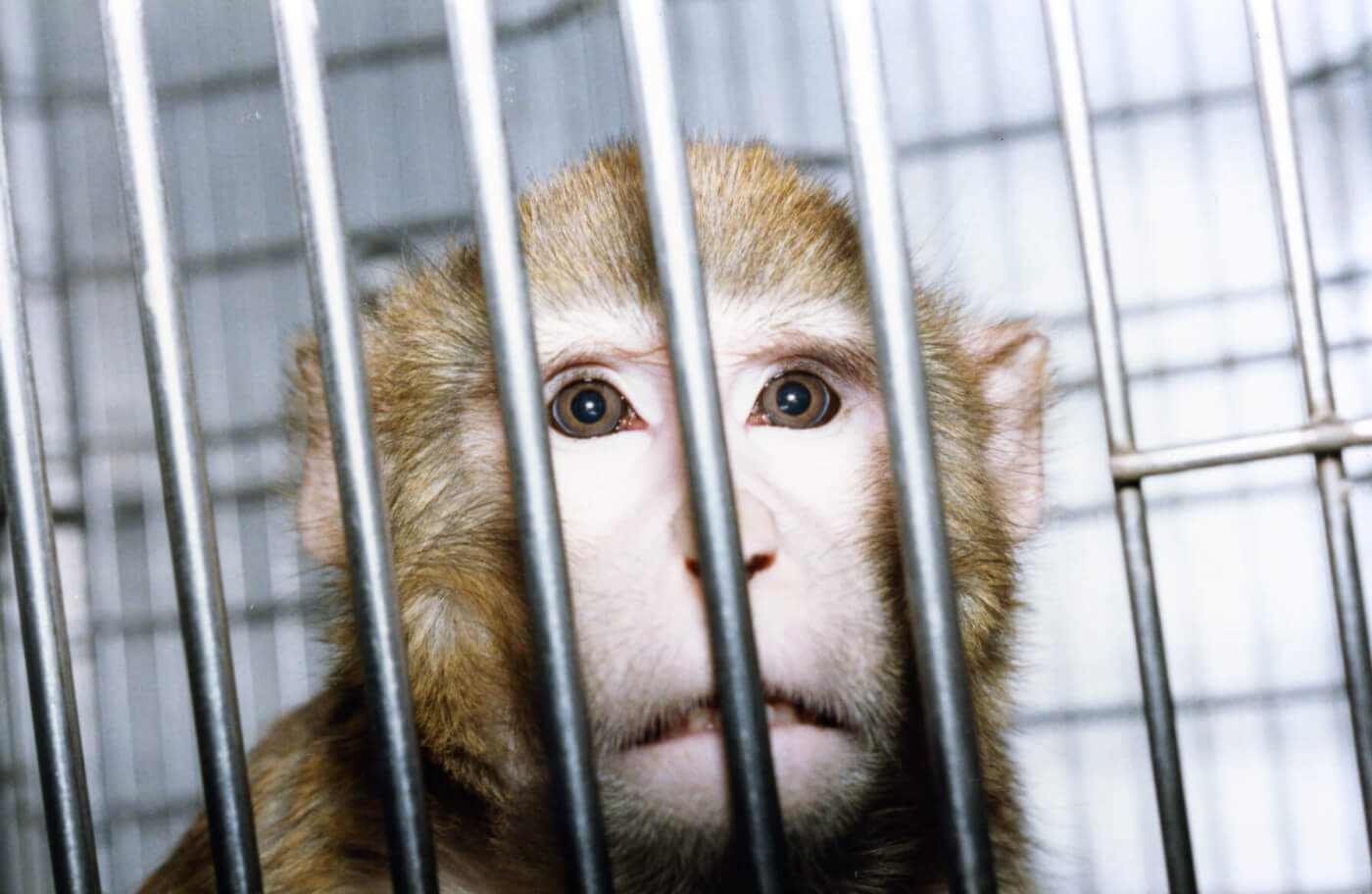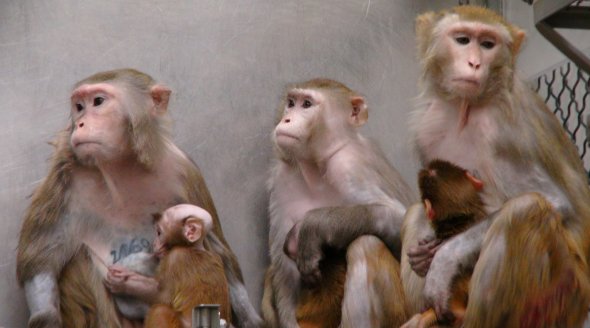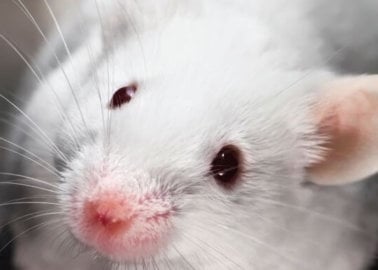Progress! Use of Animals in Experiments Decreases in the Netherlands
Recently published figures have revealed that the use of non-human primates in experiments in the Netherlands decreased by a massive 49 per cent between 2015 and 2016. There were also significant reductions in the use of dogs (by 13 per cent); horses, donkeys, and other equines (by 31 per cent); and goats, sheep, and cattle (by 39 per cent).

The dramatic decline in the use of primates came after PETA Netherlands collected over 100,000 signatures from compassionate people all over Europe and delivered them to politicians in The Hague. As a result, in March 2016, the Dutch government passed a motion to phase out experiments at Europe’s largest primate facility, the Biomedical Primate Research Centre in Rijswijk.
PETA scientists subsequently submitted an extensive dossier with a strategy for replacing animal use with superior, kinder methods. Soon afterwards, following input from many stakeholder groups, Martijn van Dam, then the Dutch Secretary of State for Economic Affairs, announced his plan for the Netherlands to end the use of animals in toxicity tests for chemicals, food ingredients, pesticides, veterinary medicines, and vaccines by 2025.
If tests on animals were eliminated, experimenters would no longer force chemicals down the throats of mice, rats, rabbits, and other animals or inject them into their bodies. And monkeys would no longer be locked inside tiny cages and infected with fatal diseases.
PETA commends the Dutch government for making progress on this issue. But as long as experimenters in the Netherlands continue to use animals in more than 400,000 procedures a year, we must keep working to end these cruel and ineffective tests.
What You Can Do
Please sign our letter calling on the European Commission and the European Parliament to observe a moratorium on all animal experiments and review them systematically to reassess their value.




